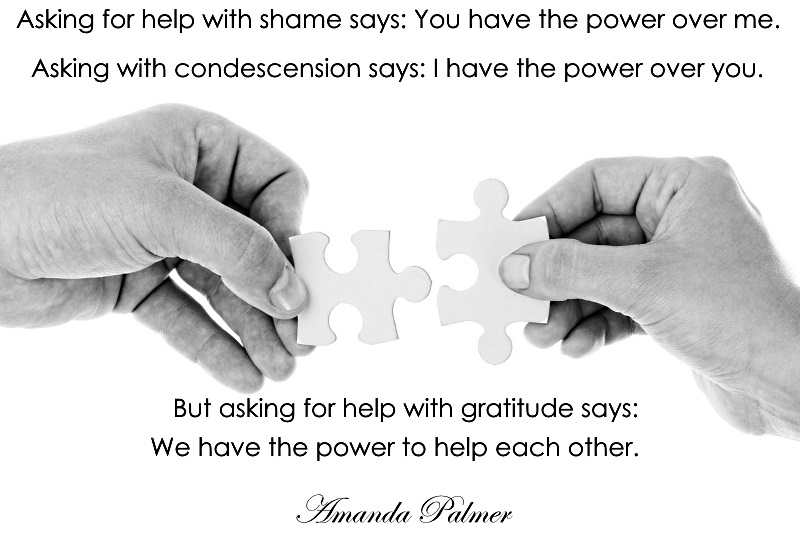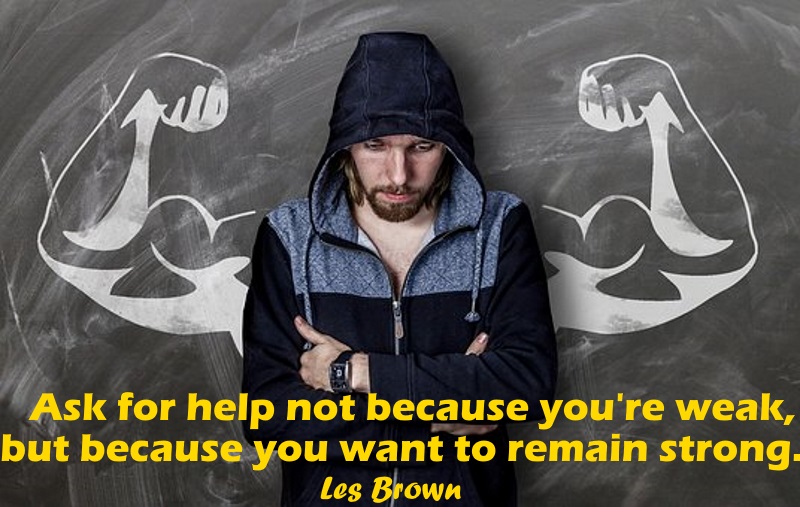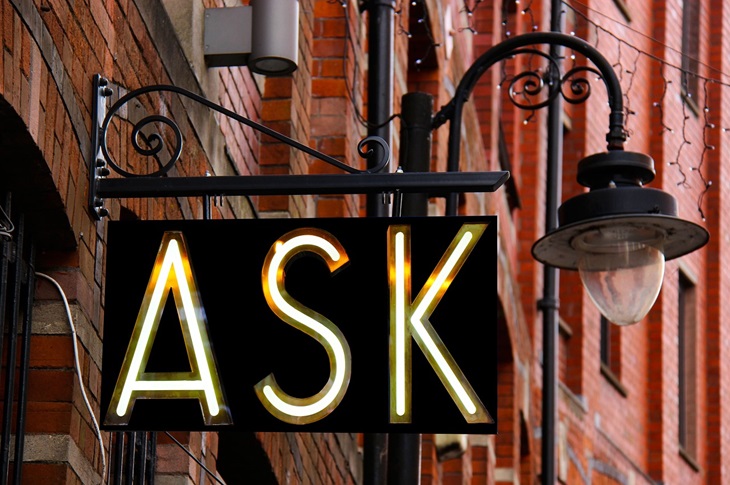
It’s a question I often ask of myself. I have the luxury of having a handful of close friends and family members who I can talk to when I am going through a difficult time—I did so just last week—but I also found myself hesitating, my finger hovering over the call button. Why?
- Pride and/or stubbornness.
- A distaste for vulnerability.
- Fear of how the other person would view me and/or my problem.
- The belief, albeit distorted, that I should be able to do things on my own and that I don’t need help. I’m an independent woman, aren’t I? Except that I don’t know how to parallel park and need someone to guide me. I also can’t change a tire and don’t know whether I should be using synthetic oil—but I can call roadside assistance by myself, so there.
I did end up calling my friend after all; I did ask her for help. And then when she called to follow-up and see how I was doing, I shut up tight; I closed my emotional vault. My friend knows me too well, however.
“You’ve shown vulnerability, and now you’re keeping me at a distance.”
“I hope you understand why we can’t be friends anymore,” I responded. “And why I may have to kill you.” I was kidding, naturally, and she laughed it off, but it offers insight into my character: I’ll lean on you if I need you, and I sometimes (often) really, really want to, but this requires me to feel and show vulnerability…and I don’t like doing that.
So am I the only one who is like this? Nope, because no one is an island. I dug up some data from Queendom’s Coachability Test, and here’s what I discovered about people who don’t like asking for help:
They hate admitting when that they don’t understand something that was said or when they are unfamiliar with a topic.
Here’s what goes through my head when someone brings up a topic I know little about: “I refuse to tell you that I have no idea what you’re talking about, because then I’ll feel stupid and I’ll also assume that you’ll think I’m stupid, even though I am quite intelligent. But sitting here nodding as though I know what you’re talking about also makes me feel stupid, so I’m stuck between a rock and a dumb place.” Interestingly, this fear of looking stupid is also the reason why people in Queendom’s sample avoid asking questions.
They hate being criticized.
It doesn’t matter how constructive your criticism is, people who hate asking for help also tend to get defensive when offered negative feedback; they just can’t help but feel angry at the person who criticized them. What’s interesting is that people who tend to lash out when criticized aren’t really angry with the critique as much as they are with themselves. Once again, it comes down to a fear of vulnerability as well as seen as incompetent.
They hate admitting when the can’t do something on their own.
They are also very reluctant to admit when they’ve made a mistake. Pride certainly plays a role, as is an aversion to hearing “I told you so,” but the formula is generally the same: Fear of vulnerability + Fear of looking weak = Fear of admitting mistakes and asking for help.
They sometimes hesitate to take on new challenges or opportunities.
Why? A major part of it might be a fear of failure, but here’s my logic: If I take on something very difficult, I probably won’t be able to do it on my own. This means I’ll need to ask you for help–but what’s the point of taking on a goal if I’m not going to be able to accomplish it on my own? Solution: Tackle goals that are within my comfort zone.
It’s really hard to sit back and let someone else take charge.
They’re used to doing things on their own; they’re used to taking the lead and telling people how to do things. They may even be used to helping other people. This happens a lot with family caregivers who work themselves to exhaustion and who don’t ask for help even when they know they could really use it. They feel like they have to show strength; that they can’t afford to be weak because the person they are taking care if is the one who really needs help. If you’re one of these people, I urge you to rethink your “I don’t need help” policy. You’re wonderful and the work you do is honorable, but if you don’t ask for help when you need it, you’ll work yourself into burnout.
I empathize with people who want to be independent, but most importantly, who are afraid of appearing vulnerable or weak. There is always a nagging fear that once someone knows your weaknesses, they’ll use them against you, hold them over you, treat you differently, judge you, mock you, or reject you. This is why a lot of people are still inhibited by the stigma of asking for help for mental health issues. This in and of itself is a matter that is very close to my heart. The irony is that admitting weakness takes a great deal of strength. Putting aside our gargantuan pride and saying, “I need your advice, I feel helpless” requires a lot of courage. So whether you need help moving into a new house or dealing with depression, speak up. There is always going to be someone out there who will want to help and one day, you’ll likely be able to return the favor.

Insightfully yours,
Queen D


